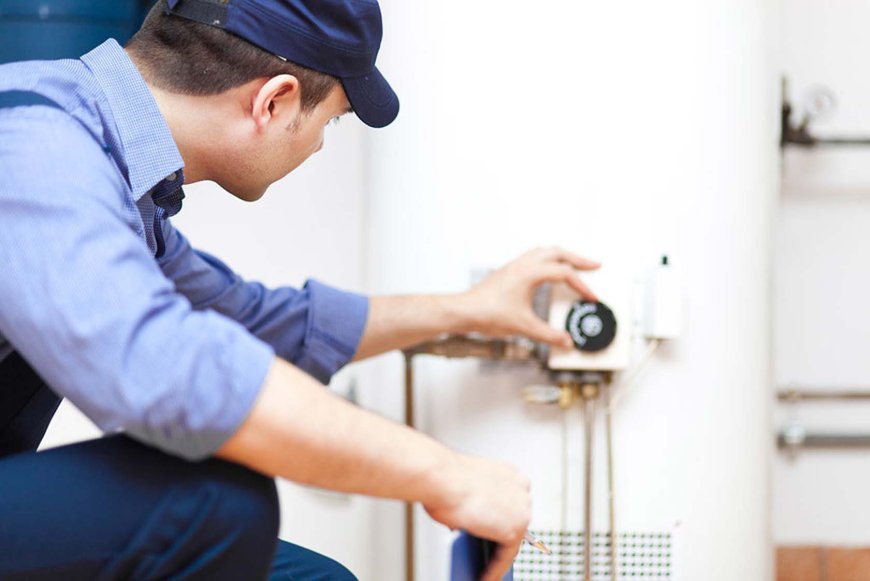Hot Water Heater Repair: 6 Common Problems (and Fixes)

Nothing feels worse than stepping into a cold shower expecting hot water. If your water heater stops working, daily routines are affectedbathing, cleaning, laundry, and even washing dishes become harder. Thats why it helps to know the signs of trouble early and get the proper hot water heater repair before it becomes a bigger issue.
In most homes, the water heater sits quietly in a corner. You dont notice it until it stops working. But just like any other appliance, it needs regular care. Leaks, temperature problems, strange noises, or water running out too fast can signal somethings wrong.
This guide explains six common problems water heaters faceand what you can do about them.
1. Water Isnt Hot Enough
If your shower water turns warm but never gets hot, the problem might be with the thermostat. Most water heaters have a built-in temperature control. If its set too low, youll only get lukewarm water.
Check the thermostat first. Electric models may have two thermostatsone for the top element and one for the bottom. If both are working but the water still feels cool, one of the heating elements may be failing. For gas heaters, the burner could be dirty or worn out.
A licensed plumber can test these parts safely and quickly handle your hot water heater repair if anything needs replacing.
2. No Hot Water at All
If no hot water is coming out, not even a little, something more serious may be wrong. For electric water heaters, the issue could be a tripped breaker or a faulty heating element. Start by checking your homes circuit panel. If the breaker is off, turn it back on and wait a bit. If it trips again, dont force itcall a plumber.
Gas water heaters work differently. If yours isnt heating, the pilot light may have gone out. This small flame lights the main burner. If its out, your heater wont produce hot water. You can try relighting it using the instructions on the unit, but if it keeps going out, you likely need hot water heater repair from a trained technician.
3. Water Is Too Hot
Very hot water isnt just uncomfortableit can be dangerous. If your tap water is scalding, the thermostat might be too high. The safe temperature for most households is between 120F and 130F (49C to 54C).
Turn the thermostat down and wait a few hours. If the problem continues, the thermostat could be broken. A faulty thermostat doesnt regulate heating correctly and may cause overheating.
In rare cases, a broken pressure relief valve could also lead to high pressure and heat, a safety risk. Check it immediately if you notice banging sounds or leaks near the valve.
4. Water Smells Bad or Looks Rusty
Strange smells or discolored water are signs that the inside of your tank may have built-up bacteria or corrosion. If the hot water smells like rotten eggs, its likely a bacterial problem, especially in homes with healthy water.
This can often be fixed by flushing the tank and adding a new anode rod, a part inside the heater that attracts corrosion. If your water looks rusty, the tank may be rusting from the inside. In older heaters, this usually means its time to replace the tank.
These issues arent just unpleasantif ignored, they can lead to damage. Contact a plumber for proper inspection and hot water heater repair.
5. Water Heater Makes Noise
If you hear popping, banging, or rumbling noises from your water heater, its likely due to sediment buildup. Over time, minerals from your water settle at the bottom of the tank. When the heater turns on, the sediment traps hot water beneath it and causes noise.
This buildup forces the unit to work harder, shortening its life and increasing your utility bill. Flushing the tank helps remove the sediment and restore normal function. A plumber can safely handle this service if the heater hasnt been flushed in years.
Too much sediment can damage the tank, so dont wait too long to schedule your hot water heater repair.
6. Leaking Around the Tank
A puddle of water near your heater is a sign of a leak. This can happen from a loose pipe, a valve that wont seal, or cracks in the tank. First, check the connections to see if anything is dripping. It may be an easy fix if it's a small valve or fitting.
However, if water comes from the unit's base, the tank may be damaged. In that case, repair might not be enoughyou may need a new unit. Leaks also risk mold or floor damage, so dont delay.
Turn off the power or gas and water supply to the heater, then call for hot water heater repair immediately.
Bonus Tip: Regular Maintenance Prevents Bigger Issues
Most water heaters last 8 to 12 years, but regular care can help them last longer. Flushing the tank once a year, checking the anode rod, and testing the pressure valve are simple steps that keep your unit in good shape.
If your heater is older or has had problems, its smart to have a licensed plumber do a yearly check-up. This helps prevent emergencies and reduces your energy bills.
Conclusion: Call When You See the Signs
Your water heater works hard every day. It heats water for showers, laundry, and cleaning. When something goes wrong, it affects your routine fast. The good news? Many issues can be fixed if caught early.
If you notice strange smells, unusual sounds, temperature changes, or no hot water at all, dont wait. These are signs your unit may need attention. Sometimes the fix is simple. Other times, a deeper repair or a replacement is required. For safe, fast, and reliable hot water heater repair, contact NJ Water Heaters, a part of Zeek Plumbing. Their licensed team can inspect your system, explain the issue, and fix it fairly.










































